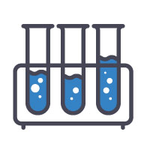
Pharmaceutical Chemistry Course Details - Fees, Subjects, Syllabus, Duration, Eligibility, Career Scope
Degrees offered: M.Pharma, Ph.D, M.Sc., B.Sc.(Hons), B.Sc.
What is Pharmaceutical Chemistry
Pharmaceutical Chemistry is a specialised branch of chemistry focused on the design, development, and analysis of drugs and medications. Students learn how to synthesise new compounds and understand their biological interactions. The curriculum combines theoretical understanding with lab sessions, which provides the students an opportunity to investigate the chemical makeup of medications, their modes of action, and the procedures involved in drug research and discovery.
This branch of Chemistry covers the fundamentals of science as well as ethical and regulatory issues related to drug development, such as the stringent testing and approval procedures needed for new drugs. The processes from early drug discovery to clinical trials and final product release can be studied by students. Graduates of this programme are prepared for jobs in regulatory agencies, research facilities, or the pharmaceutical sector.
Graduates of Pharmaceutical Chemistry are offered job opportunities in profiles like Medicinal Chemist, Quality Assurance Specialist, Pharmacologist, Regulatory Affairs Specialist. These profiles are offered in Indian Institute of Technology, Kosher Pharmaceutical Pvt. Ltd., Hygro Chemicals Pvt. Ltd., Novartis Healthcare Pvt. Ltd, IMS Health, Bakson Drugs Pharmaceuticals Pvt. Ltd for an average package of Rs. 7.5 LPA. Around 446 colleges in India offer the programme.
Pharmaceutical Chemistry Course Details
Particulars | Values |
Branch Name | Pharmaceutical Chemistry |
Degree | B.E /B.Tech, B.Sc., B.Sc.(Hons), B.Voc., BS, Diploma |
Duration | UG: 4 years PG: 1-2 years |
Eligibility | UG: Completion of 10+2 in the science stream PG: Graduation in any field with a minimum 55 per cent aggregate. |
Admission Process | Admission Examination and merit scores |
Entrance Exam | UG: NEET UG, IIT JAM, CUET UG PG: GPAT, GATE |
Course Fees | Rs. 40,000 - Rs. 12 lakhs |
Job Profiles | Medicinal Chemist, Quality Assurance Specialist, Pharmacologist, Regulatory Affairs Specialist |
Average Salary | Rs. 7.5 LPA |
Recruiting Companies | Indian Institute of Technology, Kosher Pharmaceutical Pvt. Ltd., Hygro Chemicals Pvt. Ltd., Novartis Healthcare Pvt. Ltd, IMS Health, Bakson Drugs Pharmaceuticals Pvt. Ltd, Locusera Solutions Pvt. Ltd., Value Edge Research, Dr Reddy’s Laboratories |
Specialisation or Similar Ones
Various specialisations in Pharmaceutical Chemistry allow students to focus on different aspects of drug development and analysis. Candidates can choose the specialisations based on their interests and future goals. Some of the popular specialisations offered in the field of Pharmaceutical Chemistry are mentioned in the table below.
Medicinal Chemistry | |
Drug Metabolism | Pharmacology |
Regulatory Affairs |
Top Private Pharmaceutical Chemistry Colleges in India with Fees
Pharmaceutical Chemistry courses are offered in various top private colleges in India. These colleges are highly reputed and provide the best facilities and placements in exchange of an expensive tuition fee. Some of the top private universities and colleges for Pharmaceutical Chemistry and their fees are discussed below:
Colleges | Fee Structure |
Rs. 5.16 Lakhs | |
Rs. 11.44 Lakhs | |
Rs. 5.12 Lakhs | |
Rs. 4.33 Lakhs | |
Rs. 8.62 Lakhs | |
Rs. 2 Lakhs | |
Rs. 2.48 Lakhs | |
Rs. 2 Lakhs | |
Rs. 5.78 Lakhs | |
Rs. 8.09 Lakhs |
Top Government Pharmaceutical Chemistry Colleges in India with Fees
Attending a government engineering college is less expensive than attending a private college. Many top Government colleges of India provide Pharmaceutical Chemistry courses. These colleges are well known for their high academic standards and affordable fees throughout India. The following are some of the best government colleges that provide Pharmaceutical Chemistry courses:
Colleges | Fee Structure |
Rs. 2.04 Lakhs | |
Rs. 21,900 | |
- | |
Rs. 65,300 | |
- | |
Rs. 1.02 Lakhs | |
- | |
Rs. 3.10 Lakhs | |
- | |
Rs. 48,150 |
Eligibility Criteria (UG & PG) of Pharmaceutical Chemistry
Candidates interested in pursuing a Pharmaceutical Chemistry course need to fulfil the eligibility requirements of the college. For admissions to the undergraduate degree, students should complete their 10+2 education from a recognised institute in India. For PG degrees, candidates require a bachelor’s degree in a similar or related discipline. The eligibility criteria of Pharmaceutical Chemistry courses are as follows:
Eligibility Criteria for UG Courses
Candidates who wish to pursue Pharmaceutical Chemistry at an undergraduate level must satisfy certain eligibility criteria in order to get admission into a college of their choice. These admission requirements can be different for various colleges. However, Some of the most common eligibility conditions to get admission into the course are listed below:
- Candidates must have passed 10+2 from a recognised educational board with primary science subjects. PCMB (Physics, Chemistry, Mathematics, and Biology) is a must.
- A minimum of 45 per cent aggregate score is required.
- Students may have to appear for entrance examinations if prescribed by respective colleges.
Top Entrance Exams for UG Courses
Apart from some national examinations such as NEET UG and CUET UG, some colleges may also conduct university-specific examinations for admissions. Aspiring candidates need to appear for certain entrance examinations before applying for admission. In the table below, we have provided the details of a popular examination for UG degrees.
Exam Name | Level | Conducting Body | Exam Schedule |
National | National Testing Agency | ||
National | IIT Delhi | ||
National | National Testing Agency |
Eligibility Criteria for PG Courses
The eligibility criteria to pursue a postgraduate degree in Pharmaceutical Chemistry varies by the institute. Students who have completed their undergraduate in Pharmaceutical Chemistry can further pursue their post graduation in a similar field. Aspirants must fulfil the required conditions to get admission into a college of their choice. Some basic eligibility requirements are listed below:
- Students applying for postgraduate degree in Pharmaceutical Chemistry must hold a bachelor’s degree in the related subject
- They must have completed their degrees with at least 55 per cent from a recognised institute in India.
- Reserved category students may get some relaxation in their aggregate score.
Entrance Exams for PG Courses
Candidates who have completed their undergraduate in a relevant field can appear for examinations of postgraduate. Aspirants must meet the required cutoff of these examinations to be eligible for the post graduate programmes. The examinations can be conducted at university, state or national levels. To pursue higher education in Pharmaceutical Chemistry, students need to appear for the following examinations.
Exam Name | Level | Conducting Body | Exam Schedule |
National | The National Board of Examinations | - | |
National | IISc Bangalore and seven IITs |
College Predictors VIEW ALL
Scope of Pharmaceutical Chemistry in India and Abroad
The scope of Pharmaceutical Chemistry in India is extensive. It is driven by the country's growing pharmaceutical industry, which is one of the largest in the world. Since India is a major manufacturer of generic medications, there is a need for qualified experts to help with drug research, discovery, and quality assurance. Opportunities for graduates can be found in research facilities, regulatory bodies, and pharmaceutical firms.
Careers in drug research and development have a lot of potential given the increased emphasis on innovation, especially in the area of developing new treatments. Pharmaceutical chemistry has a bright future overseas, with prospects in both developed and developing countries. The demand for professionals with expertise in biotechnology, personalised medicine, and novel drug delivery methods is driven by the ongoing evolution of the global pharmaceutical business.
Course Fees Pharmaceutical Chemistry
| Minimum Fees | Maximum Fees | |||
|---|---|---|---|---|
| Private | Government | Private | Government | |
| UG | ||||
| PG | ||||
| DOCTORAL | ||||
| DIPLOMA | ||||
Course Subjects
The students who have an interest and wish to gain further knowledge about the field of Pharmaceutical Chemistry should opt for this course. The Pharmaceutical Chemistry undergraduate and postgraduate courses provide students with extensive theoretical knowledge along with practical exposure. Hence, the course curriculum provides a holistic growth opportunity for aspirants.
Pharmaceutical Chemistry Syllabus for UG Courses
The syllabus for Pharmaceutical Chemistry for undergraduate level degrees depends on the institute, but it remains almost the same for every institute. Some of the subjects offered in undergraduate courses are Pharmaceutics, Human Anatomy and Physiology, Biochemistry, and Microbiology. The below-mentioned syllabus is of B.Voc Pharmaceutical Chemistry from the Sikkim University:
First Semester | Second Semester |
Pharmaceutics I | General Chemistry II |
General Chemistry I | Fundamentals of Biochemistry |
Human Anatomy and Physiology | Analytical Chemistry I |
Third Semester | Fourth Semester |
Pharmacognosy and Phytochemistry | Foundation Course (English) |
Pharmaceutics II | Microbiology |
Medicinal Chemistry I | Medicinal Chemistry II |
Fifth Semester | Sixth Semester |
Foundation Course (Environmental Studies) | Foundation Course (Eastern Himalayan Studies) |
Pharmacology I | Pharmacology II |
Analytical Chemistry II | Entrepreneurship Development |
Pharmaceutical Chemistry Syllabus for PG Courses
Candidates can check the syllabus for Pharmaceutical Chemistry at the postgraduate level on the official website of the chosen institute. The course curriculum of Pharmaceutical Chemistry is wide and provides theoretical and practical knowledge to students. Mentioned below is the syllabus of M. Pharm. Pharmaceutical Chemistry provided by Kakatiya University.
First Semester | Second Semester |
Advanced Organic Chemistry – 1 | Advanced Organic Chemistry – 2 |
Advanced Medicinal Chemistry – 1 | Advanced Medicinal Chemistry – 2 |
Spectroscopic Identification of Organic Compounds | Chemistry of Natural Products |
Screening methods in Pharmacology | Chromatographic Separation technology |
Careers in Pharmaceutical Chemistry
Careers in Pharmaceutical Chemistry offer diverse opportunities in drug research, development, and quality control. Experts in this domain are essential to the development of new medications, guaranteeing their security and effectiveness, and introducing them to the market. They can contribute to improvements in healthcare and medicine by working for pharmaceutical corporations, academic institutions, research centres, and government agencies.
Job Profiles | Job Descriptions |
Medicinal Chemist | Medicinal Chemists create and manipulate new pharmaceutical substances, refining their chemical composition for intended medical use. They are essential to the early phases of drug development because they concentrate on making medicines that are both safe and effective. |
Quality Assurance Specialist | Quality Assurance Specialists make sure that pharmaceutical products adhere to legal requirements and quality standards. To ensure the uniformity, safety, and compliance of their products, they carry out audits, evaluations, and testing. |
Pharmacologist | Pharmacologists examine the safety, effectiveness, and mechanisms of action of medications as they relate to biological systems. Their studies serve as a roadmap for the creation of new drugs and guarantee that they are both safe and effective. |
Regulatory Affairs Specialist | Regulatory Affairs Specialists prepare and submit the necessary paperwork for drug approvals, overseeing the pharmaceutical products' adherence to legal and regulatory criteria. They guarantee that goods fulfil safety and regulatory requirements in various markets. |
Upcoming trends
Upcoming trends in Pharmaceutical Chemistry include the rise of personalised medicine, which tailors treatments to individual genetic profiles, and the development of advanced drug delivery systems for more targeted therapies. Artificial intelligence and biotechnology advancements are also improving drug development and discovery procedures. Some upcoming trends in the field of Pharmaceutical Chemistry include:
- Personalised Medicine
- Biopharmaceuticals
- Sustainable and Green Chemistry
- Artificial Intelligence and Machine Learning
- Pharmacogenomics
- Regenerative Medicine
Job Profiles and Top Recruiters
Job profiles in pharmaceutical chemistry are essential to quality control and medication development. These include jobs like Quality Assurance Specialists, who make sure regulations are followed, and Medicinal Chemists, who create and synthesise new medications. The advancement of pharmaceutical science and the enhancement of patient outcomes depend heavily on these professions.
Top Recruiters:
- Indian Institute of Technology
- Kosher Pharmaceutical Pvt. Ltd.
- Hygro Chemicals Pvt. Ltd.
- Novartis Healthcare Pvt. Ltd
- IMS Health
- Bakson Drugs Pharmaceuticals Pvt. Ltd
- Locusera Solutions Pvt. Ltd.
- Value Edge Research
- Dr Reddy’s Laboratories
Average Salary
Candidates in the field of Pharmaceutical Chemistry are offered lucrative benefits and high salary packages. The salary packages vary with the amount of experience and skills of Pharmaceutical Chemistry. On an average scale, however, these are the starting salaries one can expect for different job profiles. The average salary of some most common job profiles are:
Job Profiles | Average Expected Salary |
Medicinal Chemist | Rs. 7.9 LPA |
Quality Assurance Specialist | Rs. 6.3 LPA |
Pharmacologist | Rs. 5.9 LPA |
Regulatory Affairs Specialist | Rs. 7.3 LPA |
Source: Ambition Box
The salary figures mentioned anywhere in these articles are just for reference purposes. Please treat them as such. Actual salaries may vary depending on respective candidates, employer, job location, and numerous other factors.
Required Skillset for Pharmaceutical Chemistry
The required skill set for Pharmaceutical Chemistry encompasses a blend of medical knowledge, holistic healing techniques, and interpersonal abilities. Students who wish to enter the field must possess a combination of various skills and qualities that will help them to excel in their career. Mentioned below are some of the important attributes and skills required for the Pharmaceutical Chemistry field.
- Medical Knowledge
- Technical Expertise
- Analytical Skills
- Regulatory Knowledge
- Patient Management
- Business Acumen
- Empathy and Compassion
- Research Skills
Course Curriculum for Pharmaceutical Chemistry
The course curriculum for Pharmaceutical Chemistry begins with foundational courses in general and organic chemistry, providing a solid basis for understanding drug chemistry. Core subjects include medicinal chemistry, which covers the design and synthesis of pharmaceutical compounds, and pharmacology, which explores how drugs interact with biological systems. The curriculum may also cover emerging areas such as biopharmaceuticals, personalised medicine, and regulatory affairs.
Students also study analytical techniques such as chromatography and spectroscopy, essential for drug analysis and quality control. Practical laboratory work is a key component, offering hands-on experience in synthesising and testing drug compounds. Advanced coursework often includes topics like drug delivery systems, formulation science, and pharmacokinetics, which focus on the development and optimization of drug formulations and their behaviour in the body.
Popular Pharmaceutical Chemistry Entrance Exams in India
Frequently Asked Questions (FAQs)
Question: Can I do M.Sc. in Pharmaceutical Chemistry after doing B.Sc. in Pharmacy?
Answer :
Yes, you can. But all colleges and universities do not offer this facility. So, it depends on which college you are looking up to and their eligibility criteria.
Question: What is Pharmaceutical Chemistry?
Answer :
Pharmaceutical Chemistry is devoted to the creation, research, and evaluation of pharmaceuticals. It entails creating novel chemicals, comprehending how they interact with biological systems, and guaranteeing the security and effectiveness of such compounds.
Question: What are some of the highest paying jobs in Pharmaceutical Chemistry?
Answer :
Some of the highest paying jobs include Medicinal Chemist, Quality Assurance Specialist, Pharmacologist, Regulatory Affairs Specialist. The salary package will be increased synonymously with better experience in the field.
Question: What is the average salary of a Pharmaceutical Chemistry graduate?
Answer :
The average salary of a Pharmaceutical Chemistry graduate is Rs. 7.5 LPA.
Question: What is the scope of Pharmaceutical Chemistry?
Answer :
The field of pharmaceutical chemistry encompasses prospects for employment in pharmaceutical businesses, research institutes, and regulatory bodies, as well as drug discovery, development, and quality control. It includes creating novel pharmaceuticals, enhancing existing drug formulations, and guaranteeing adherence to safety regulations.
Questions related to Pharmaceutical Chemistry
i am studying bsc in pharmaceutical chemistry can i apper for gpat
Hello,
Yes, you can appear for the Graduate Pharmacy Aptitude Test (GPAT) if you are studying B.Sc. in Pharmaceutical Chemistry. GPAT is a national-level entrance exam conducted by the National Testing Agency (NTA) for admission to postgraduate pharmacy programs (M.Pharm) in various colleges and universities across India.
Hope this helps,
job for vocational degree in pharmaceutical chemistry
Hello aspirant,
One of the fastest growing and most sought-after businesses is the pharmaceutical industry. Jobs in the pharmaceutical industry in India offer a wide range of career options. Pharmacy covers a wide range of academic disciplines, including medicinal chemistry, industrial pharmacy, drug safety, marketing, accountancy, and finance. Health sciences,
Msc analytical chemistry is best or pharmaceutical chemistry best or industrial chemistry is best In msc courses please guide me im so confused
Hello!
It solely depends upon your interest on which course you'll choose. However, considering the present scenario analytical chemistry has the maximum job opportunities, followed by industrial chemistry and then pharmaceutical chemistry.
All the best!
write the important aspects of pharmaceutical chemistry
Hi,
Pharmaceutical chemistry is the study of drugs, and it involves drug development. This includes drug discovery, delivery, absorption, metabolism, and more. There are elements of biomedical analysis, pharmacology, pharmacokinetics, and pharmacodynamics. Pharmaceutical chemistry work is usually done in a lab setting.
Pharmaceutical in chemistry has a great career scope
if i hv no any practical experience then can I take practical experience or training in any reputed pharma company after my msc pharmaceutical chemistry
Hello student,
Yes, you can get practical experience in the companies by the help of industrial internships and training periods for which you have to contact the specific companies offering it for freshers. For your knowledge, Here is the list of some of the best pharmaceutical companies which might be




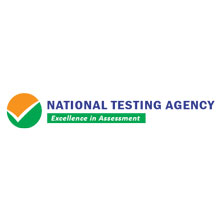

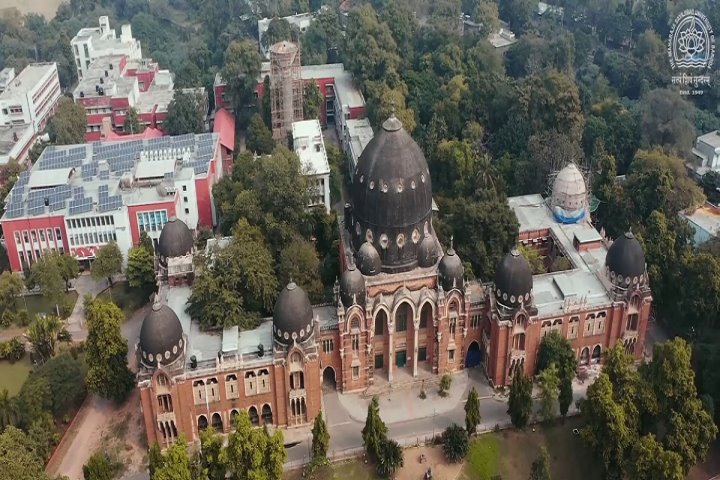


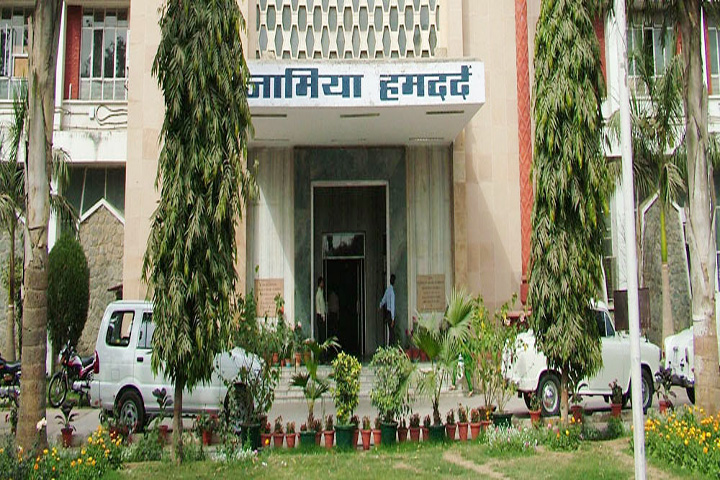
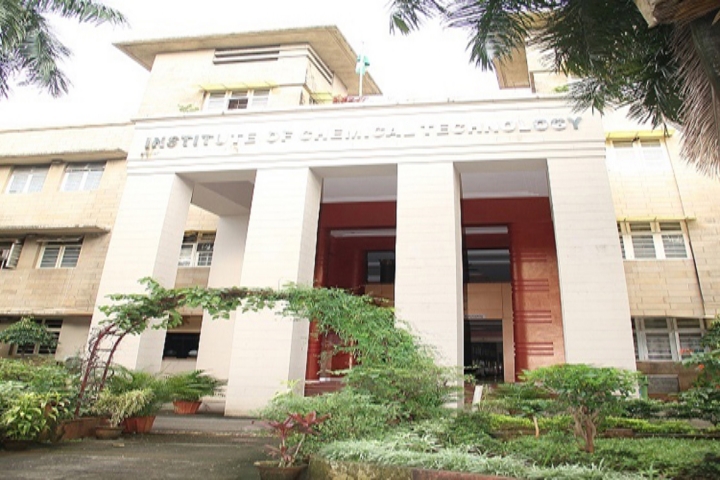
.jpg)
.jpg)

 Answer later
Answer later